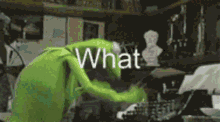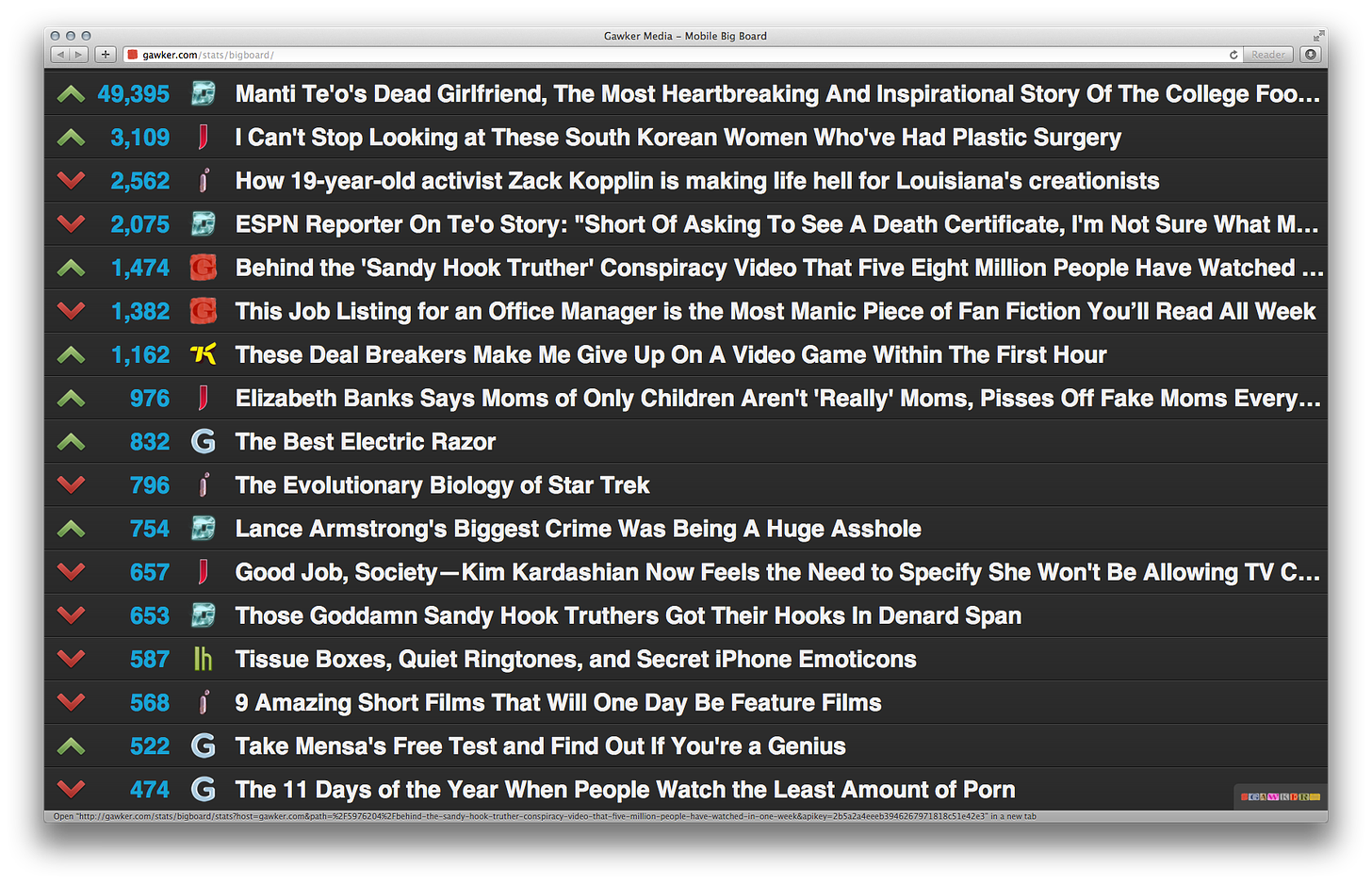The shit? You eat it: Why you -- the reader -- should take some blame for bad journalism
Sorry. Not sorry.
Warning: You might not like this one.

One of the biggest frustrations, if you work in journalism, is talking to people who don’t and hearing them complain about all the ‘stupid’ stuff that newspapers, magazines, and websites cover -- the minutiae, the trivia, the celebrities that certain men seem to refuse to Google if they haven’t heard of them. It’s bullshit.
All publications now have a version of a ‘big board’ (really popularised by Darwinian media monster and genius Nick Denton) -- a system that shows live stats for stories on their websites and which tracks which reporters/writers/columnists are killing it and whose stuff is absolutely eating dirt.

The Gawker big board from the bad/good old days.
When I worked at The Next Web, I was in constant competition to hold the top spot on that publication’s big board. It was a contest between me and a slightly younger guy called Owen Williams. Owen has a preternatural ability to write pieces that get hits, but back then -- 2015 -- he also had a tendency to jump to conclusions and twist perspectives to get a better headline.
Owen and I were frenemies. Some days I beat him and he hated it. Some days he beat me and I felt like a toddler who had just had his toys taken away.
Our friendship did not survive the battle over the big board.
Why am I telling you about the big board? Because the big board doesn’t really lie. And every big board tells you one thing -- readers say they like their greens (the lovely nutritious news stories about important things) but they actually love gorging on shit (silly videos, dumb opinion pieces, ‘clickbait’).
It’s called clickbait because it works.
This is not to say that journalists should be allowed off the hook for being complicit in that clickbait system, but readers, viewers, and listeners need to cop on; most clickbait exists because that’s what gets numbers.
Why did BuzzFeed kill its story-breaking UK news operation? Because it won awards but it didn’t drive enough clicks. Lists and quizzes remain. That’s what the audience wants to eat. And no one in the BuzzFeed leadership is willing to fight to make the toddler audience love its greens.


